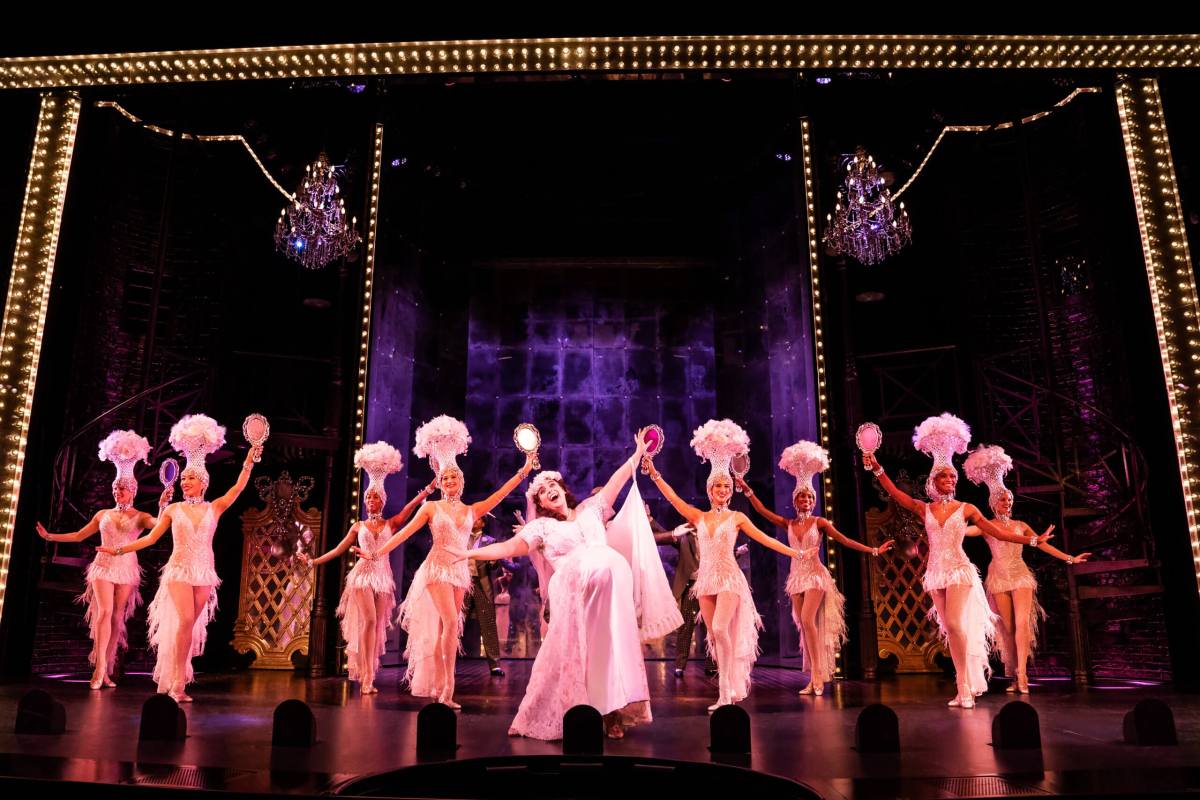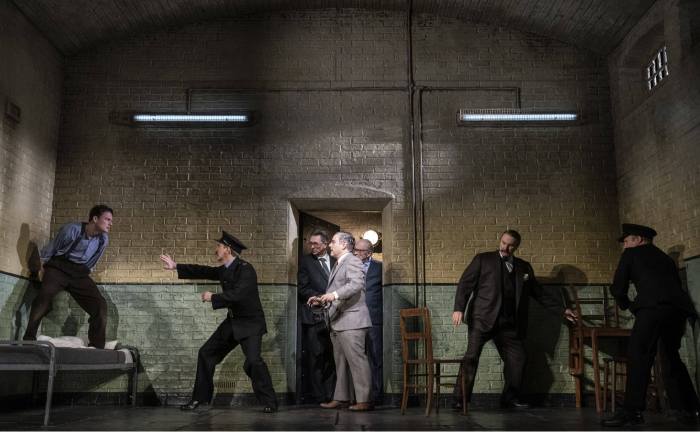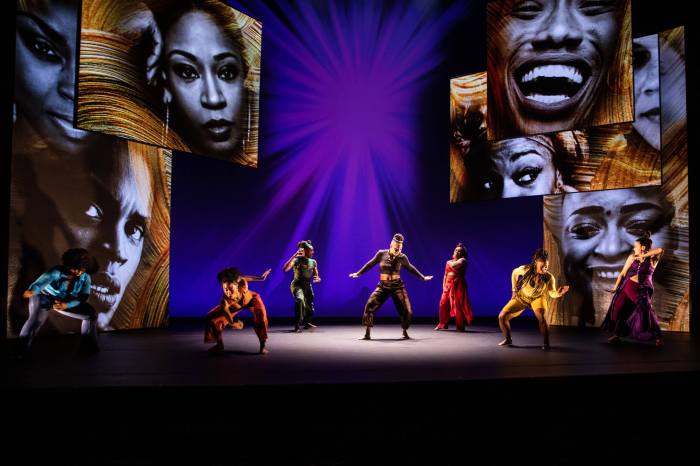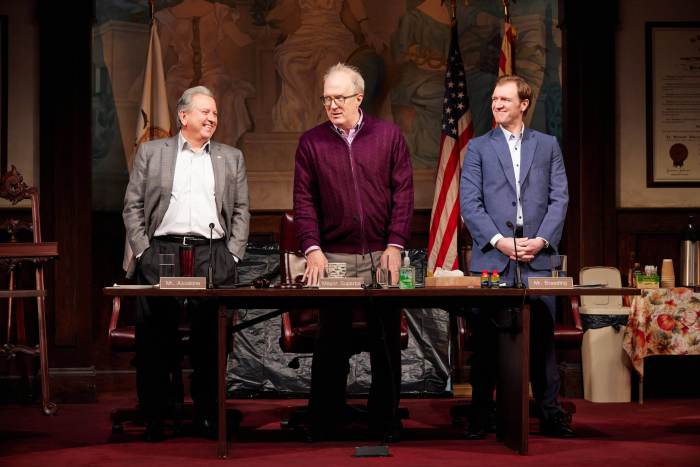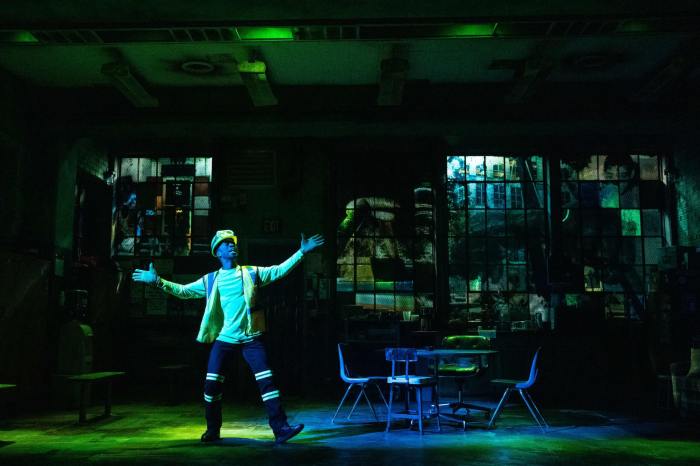It took nearly 60 years for “Funny Girl” to receive a Broadway revival – and theater aficionados will probably spend the next 60 years scratching their heads wondering how and why Beanie Feldstein got cast as Fanny Brice.
In past years, “Funny Girl” almost returned to Broadway with Debbie Gibson (who did a short-lived 1996 national tour), Leslie Kritzer (who appeared in an acclaimed 2001 production at Paper Mill Playhouse), Lea Michele (whose character on “Glee” starred in a Broadway revival of the show), Lauren Ambrose (who was slated to star in a 2012 Broadway revival that got scrapped at the last minute), and Idina Menzel (who was originally expected to star in the current revival).
I have nothing against Feldstein. The 2005 Wesleyan grad is a capable and likable actress, as seen in her performances in the Broadway revival of “Hello, Dolly!” (as the comic sidekick Minnie Fay) and the films “Lady Bird and Booksmart.” She was also quite moving as Monica Lewinsky in the TV miniseries “Impeachment.” I also appreciate the fact that Fanny Brice, an early 20th century Jewish comedienne, is being played by a Jewish woman.
However, Fanny is an extremely demanding role requiring larger-than-life vocals, comedic prowess, and emotional reserves. Any actress who tackles the role today must also reckon with the legacy of Barbra Streisand’s inimitable performance in the original 1964 production and 1968 film adaptation.
Truth be told, “Funny Girl” is a star vehicle that is not much more than the leading role, as demonstrated by its weak and melodramatic book (which has been revised a bit by Harvey Fierstein) and the inferior quality of literally every song that is not sung by Fanny (many of which were cut from the film).
Without an extraordinary lead performance, “Funny Girl” doesn’t work – which is unfortunately the case here. Vocally, Feldstein is strained and nasal and unable to handle power solos like “I’m the Greatest Star,” “People,” “Don’t Rain on My Parade,” and “The Music That Makes Me Dance.” She also overplays the comedy and resorts to mugging. (I question how Feldstein could even be cast as Fanny in a high school or theater camp production.)
Feldstein’s miscasting is made even more evident by the fact that the production’s supporting cast is especially strong, including Ramin Karimloo as Fanny’s husband Nick, Jared Grimes as her friend Eddie, and Jane Lynch as her mother Mrs. Brice.
The blame for Feldstein’s performance rests not with her but with the people who cast her, including director Michael Mayer (who previously staged the musical in London with an English cast). What were they thinking? While Feldstein has film credits, she is not such a big star that she could have scored the role without auditioning. Did they check whether she could sing the role?
Mayer’s revival (which runs nearly three hours) lacks opulent production values, including a large orchestra that can do justice to the show’s dynamic overture, or a large ensemble that can do justice to the “Ziegfeld Follies”-style production numbers. While the Broadway revival of “The Music Man” may be relatively dull, it at least has two great lead stars and substantial production values.
Rather than attending “Funny Girl,” I recommend listening to the original cast album or watching the film and hoping for better luck when the show receives its next Broadway revival…in the year 2080.
August Wilson Theatre, 245 W. 52nd St., funnygirlonbroadway.com.



